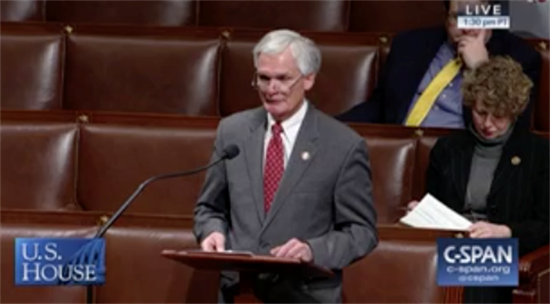Press Releases
Reforms to Over-the-Counter Monograph Process Championed by Latta Approved by the U.S. House
Washington,
January 9, 2019
|
Drew Griffin
(202-225-6405)
Bipartisan reforms championed by Congressman Bob Latta (R-Bowling Green) to the over-the-counter (OTC) monograph system passed the U.S. House of Representatives last evening. The legislation, H.R. 269, the Pandemic and All-Hazards Preparedness and Advancing Innovation (PAHPA) Act, includes text from the Over-the-Counter Monograph Safety, Innovation, and Reform Act. That bill was authored by Latta last Congress and passed the House. It was not taken up by the Senate. That bill modernizes the monograph framework and allows new, safe products to come to market more quickly while addressing safety issues and expanding consumer choice. It also allows the Food and Drug Administration to make scientific determinations for OTC ingredients through an administrative order process, which is much more efficient than the current rulemaking system. “When innovation is stymied, it’s consumers that ultimately have less access to products that are safer, more affordable, and more effective,” said Latta. “The need to modernize the OTC monograph system has been apparent for decades, but partisan disagreements made it difficult to fix the problem. I’m proud of our work across the aisle in the 115th Congress to author landmark legislation that was approved in the House of Representatives, but unfortunately fell victim to the politics of the Senate. Even though control has changed in the House, it shows how important this legislation is that we are taking it up in the first week. These changes will mean more certainty for manufacturers, and that means more innovation. When we are talking about products that tens of millions of Americans use every day, that’s a big deal.” For video of Congressman Latta speaking in favor of the bill on the floor, click here.
Background
### |


